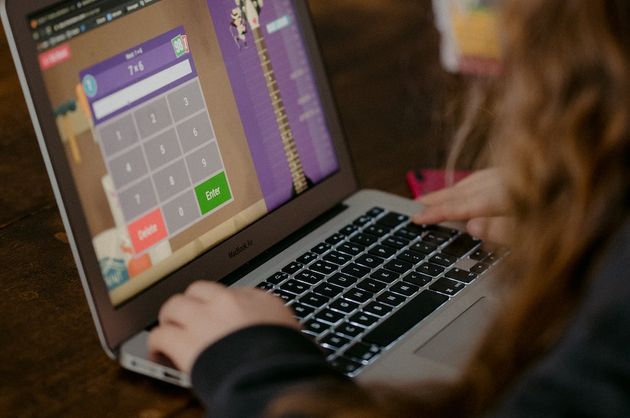Although the connections have improved very much, not everybody has the minimum necessary resources or tools: an updated computer, a scanner or printer, a good internet connection.
 Photo: Annie Spratt. Unsplash (CC0).
Photo: Annie Spratt. Unsplash (CC0).
According to UNESCO, at least 1,534,227,915 students are affected by the closing of classes during the worldwide quarantine, due to the COVID-19.
In a little over a month and a half, since February 16, the face-to-face and traditional learning system has changed to a much more dynamic and modern one, virtual and online.
The first requires the presence of the teacher and students in the same physical space; that is not necessary in the second, although it does require sharing a digital environment.
Although the connections have improved very much, not everybody has the minimum necessary resources or tools: an updated computer, a scanner or printer, a good internet connection, or other simpler elements such as a micro and good headphones, to interact online.
VIRTUAL EDUCATION
Virtual and online teaching complement each other, but they are not exactly the same. The virtual one creates and manages an online classroom.An example is Google Classroom.
From that classroom, the teacher can share interesting materials, links, tasks, bibliography and even a calendar that sequences the topics of the quarter.
One of its most practical aspects is that the group or class does not need to connect at the same time. Each student can receive new notifications by email, and manage them whenever they want.
ONLINE EDUCATION
On the other hand, online education, unlike the virtual one, adds the element of real time, since they are live online classes, very practical, to solve doubts and have a more personal treatment with the student.
However, in this crisis there is a problem that may seem insignificant, but it is not. If the father and mother work from home, and their children too, how do they do it if they only have one device?
If I have a live online class at 10am that coincides with a video conference from another member of my family, who has priority?
It seems that it is necessary to reach a consensus in the family, that must start from a planning that is difficult because, during a crises there are many unforeseen events, such as last-minute problems from a client, unexpected requests of reports by an inspection, or the end of the deadline for sending documentation that we did not know had to be delivered, etc.
The greater the number of members in the family, and the fewer the number of technological resources, the more complicated the situation will be.
THE DANGER OF BEING “INFOXICATED”
On the other hand, it must be taken into account that the use that a pre-university student can make of the devices, is not the same as the use of a primary school student (accompanied by an adult).
The first interacts by himself, the second may not, so the parent is obliged to also be present in the class, even if they do not want to.
The UNESCO provides several resources for distance learning, both virtual and online. The Internet offers thousands of proposals, but we are at risk of falling “infoxicated” if we try to follow all of them. In any case, the tools must be that, tools, that is, a means, not an end in themselves.
“THE AWE AT THE UNKNOWN”
Pascal once pointed out that “the eternal silence of these infinite spaces frightens me”. He was not referring to the internet, but to the feeling of amazement at the many questions that he could not answer after contemplating nature.
Despite the screens, I hope we never lose that feeling of awe at the unknown. Perhaps only then will we never stop learning, even if we don't have all the answers here and now.
Francisco Sánchez is a Secondary School teacher in Spain.

Las opiniones vertidas por nuestros colaboradores se realizan a nivel personal, pudiendo coincidir o no con la postura de la dirección de Protestante Digital.
Si quieres comentar o